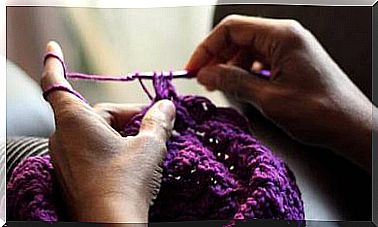The 7 Principles For Managing Offenses
One way to help yourself is to shed the weight of offenses, get rid of grudges and learn better strategies to prevent and solve them.

We often tend to look to blame rather than hold ourselves accountable and manage the jumble of chaotic emotions that sometimes flood us.
We bounce back from the aggression – which we believe we have received – whom we feel has offended us or perhaps who, by pure chance, was passing by.
“If we fix our hair every day, why don’t we do the same with our hearts?” Gandhi said .
With each of our behaviors we place a piece on the foundation of our inner world, either in the sense of balance or in that of chaos.
Let’s not wait for someone to solve our life, we have room for maneuver and we can improve our emotional climate!
But what to do when conflicts arise? These seven principles suggest how to deal with them.
1. Autonomy
“Help yourself and others will help you.” One way to help yourself is to shed the weight of offenses, get rid of grudges and learn better strategies to prevent and solve them.
Whoever helps himself receives help. It is preferable not to play the role of complainer or victim.
Better, then, to collaborate with oneself in the acquisition of more knowledge, granting what is needed without waiting for it to come from others.
It is worth opening up to life and giving yourself all the opportunities you deserve.
2. Prevention of dependencies
“Do not do for others what they can do for themselves.” Because we can offend them if we do.
It would be like considering that other people are incapable or less competent, and that implies an invasion of their space for growth, freedom, decision, learning …
In this way, a relationship of power and dependence is established that generates offense and resentment. In addition, it implies a lack of respect.
3. Correspondence or boomerang effect
“Everything you do to others you also do to yourself.” That is, if we offend, we offend ; and if we forgive, we forgive ourselves.
What we emit, we receive. So, if we don’t like what we gather, it is necessary to review what we sow …
4. Recognize individuality and difference
“Do not do to others what you want for yourself: they may have different tastes.” In the subject of the offense there are many interwoven cultural factors.
It is important not to go around the world with a paternalistic or one-minded attitude.
Mental flexibility and the recognition of the right of the other to think and feel for himself, within a framework of values that promote coexistence, are essential strategies to live free from the burden of offense.
5. Natural morality
“Don’t do to others what you don’t want them to do to you. ” Does anyone not want to receive attacks, criticism, insults, humiliation or offenses? Well, the first step is not to make them yourself.
Do we not want to be ignored or isolated or made fun of for our way of acting or being? Well, let’s not do that either.
It is one of the great principles common to all cultures and civilizations.
We may not agree on what is desirable, but few people disagree about what they consider to be undesirable.
6. Previous self-application
“You cannot do or give to others what you do not give yourself” … although there are those who think it is possible.
Sometimes we try to take care of others without taking care of ourselves ; give peace, without having inner calm; We recommend that children forgive themselves, but we live in fights.
In those cases we have a problem of personal coherence. This internal division generates suffering that affects behavior.
It is convenient to start with yourself. Only from there is it possible to educate and positively influence others.
Perhaps it could be added to the Lord’s Prayer : “just as we forgive ourselves … and our offenders.”
7. Relational cleansing
“We have a duty to clean up fictitious, unhealthy relationships that hold back our personal growth.”
We are responsible about our relationships. And if these are aggressive and disrespectful, damage our self-esteem or stifle our possibility of being, it is preferable to let go of them.
Because if we live with someone who has chosen to live offended or who acts as an offender, we will end up being emotionally contaminated and contagious with their behavior.









